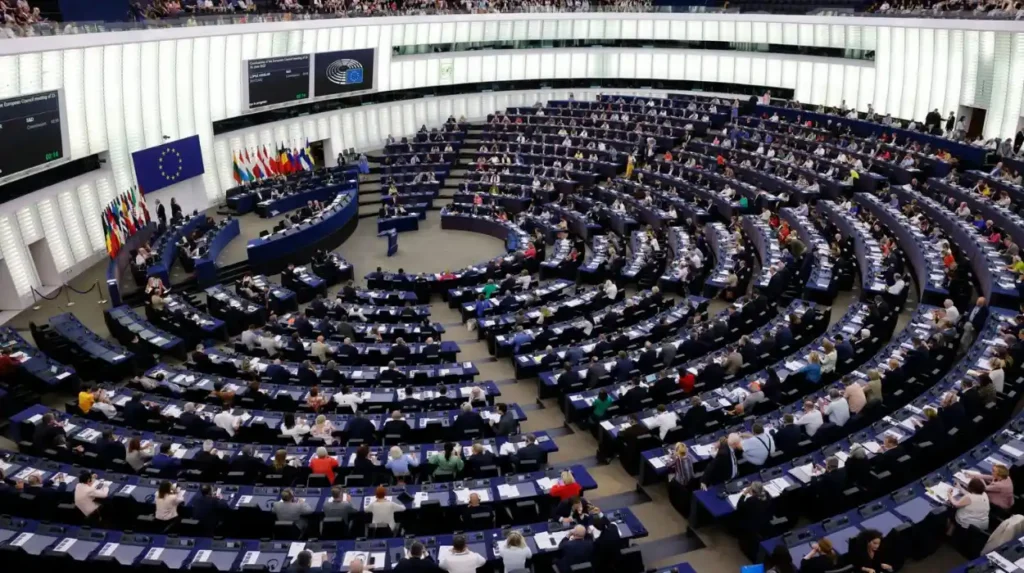The Member of the European Parliament (MEP) is a key figure in the European Union’s legislative branch, directly representing the citizens of the member states in the European Parliament. The institution, whose members are elected every five years through a proportional representation electoral system, serves as the EU’s primary democratic voice and plays a fundamental role in shaping legislation that affects over 450 million Europeans.
The Role and Function of MEPs
MEPs serve multiple crucial functions. As legislators, they debate, amend, and vote on EU laws, working closely with the Council of the European Union and the European Commission in the EU’s complex legislative procedure. Beyond legislation, MEPs exercise budgetary powers, scrutinizing and approving the EU’s annual budget, which directs billions of euros towards various policies and programs. They also hold supervisory responsibilities, including overseeing other EU institutions, checking the Commission’s work, and holding hearings of Commissioners. Lastly, MEPs represent EU citizens, addressing their concerns through petitions and dialogues, thus grounding EU policymaking in democratic legitimacy.
Election and Composition of the European Parliament
Members of the European Parliament are elected every five years by direct universal suffrage according to proportional representation. However, the specifics vary by country, with some states electing MEPs from a single national constituency and others using regional divisions with thresholds capped at 5%. The number of MEPs per country is based on the principle of “degressive proportionality,” which ensures smaller states have proportionally more representation relative to their population than larger states. The current composition stands at 720 members following the latest election in 2024.
This system strikes a balance between population size and ensuring smaller members have a meaningful voice, fostering fair representation among all 27 EU member states. For instance, Germany, the most populous country, holds 96 seats, while smaller countries like Malta and Luxembourg each have 6 seats.
Political Groupings in the Parliament
Contrary to national parliaments, MEPs are primarily organized by political affiliation rather than nationality. These transnational political groups, such as the European People’s Party (EPP) and the Progressive Alliance of Socialists and Democrats (S&D), cluster members who share ideological perspectives, facilitating coordinated action across countries.
Political groups must have at least 25 MEPs from at least one-quarter of the member states, ensuring diversity and cross-border cooperation. This structure allows MEPs to collaborate on shared legislative goals while navigating a multi-national context. It also enables the Parliament to form coalitions necessary for passing legislation, given that no single group holds an outright majority.
Daily Life and Responsibilities of an MEP
The European Parliament holds plenary sessions predominantly in Strasbourg for typically four days each month, complemented by committee meetings and additional sessions in Brussels. MEPs engage deeply in committee work, where most legislative preparations and detailed amendments occur. They can propose motions, table amendments, raise points of order, and actively participate in debates and votes.
MEPs are compensated with a standardized salary, restrictions on outside income to avoid conflicts of interest, and privileges including legal immunities similar to those of national legislators. Their role demands constant travel, negotiation, and balancing national interests with collective European concerns.
Notable Features and Trends
MEPs come from diverse backgrounds including former national and regional politicians, ministers, judges, labor leaders, and civil society activists. The European Parliament has also seen increasing female representation, rising from around 15% after the first direct elections to over 40% in recent terms, with continued efforts toward gender parity.
The youngest MEP was elected at just 21 years old, reflecting the Parliament’s openness to diverse voices and generational change. Additionally, EU citizens may run for election in member states where they reside regardless of nationality, contributing to the Parliament’s transnational character.
Impact and Importance
The European Parliament is a cornerstone of the EU’s democratic legitimacy, representing the citizens of its member states in decisions that impact trade, environment, security, justice, and digital policy. Its MEPs have significantly expanded powers through successive treaties, gradually transforming the institution into a central arena for shaping the EU’s future.
As debates intensify across Europe on climate change, migration, digital transformation, and global competition, MEPs stand at the forefront of crafting policies that balance local, national, and European interests. They embody the unique supranational democratic process that distinguishes the EU political system.
The Member of the European Parliament plays a multi-dimensional role as legislator, budget controller, supervisor, and citizen representative. With a membership of 720 drawn from across the EU and organized by political affinity, MEPs bridge national diversity with European unity. Their evolving composition, responsibilities, and political group collaboration shape one of the world’s most complex but innovative legislative bodies, crucial for navigating Europe’s challenges and opportunities into the future.







